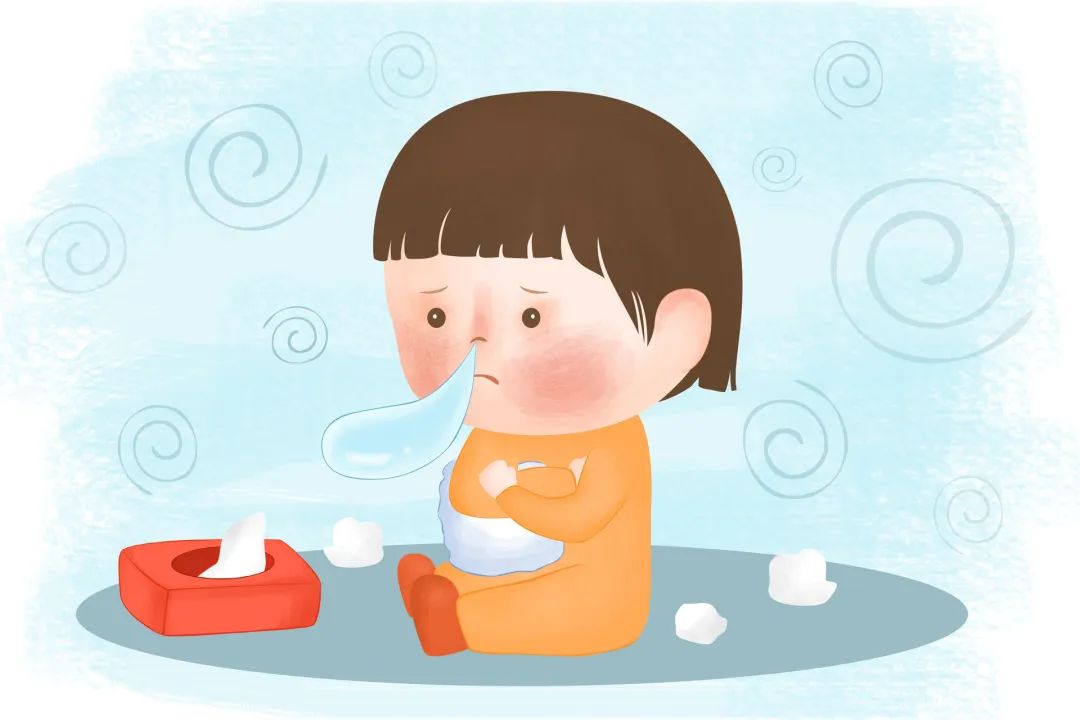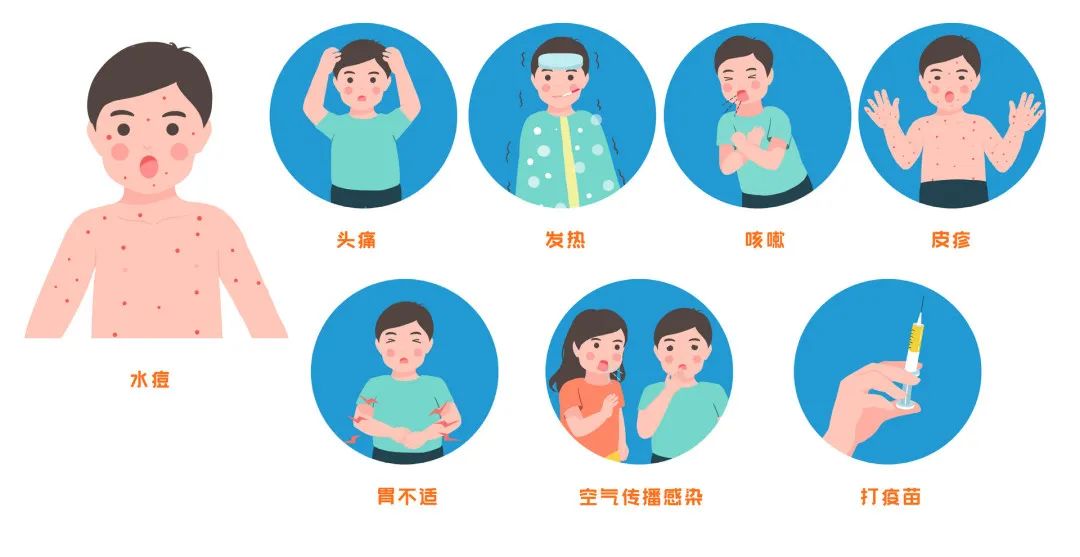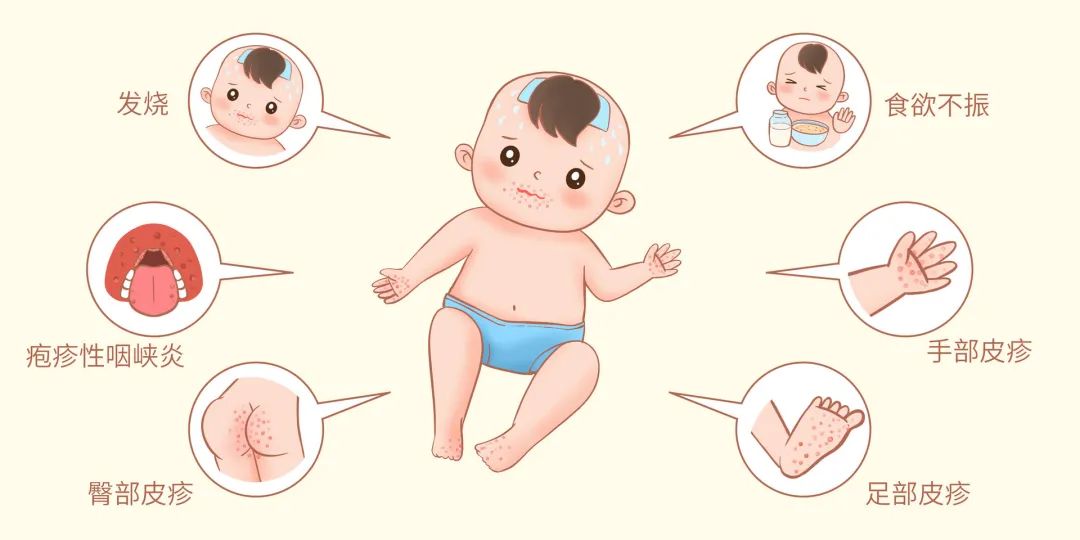In the opening season, beware of the four types of infectious diseases
Author:China Family Planning Associat Time:2022.09.16
New Term
It is said that the school season is the "sick season", and many parents who are immersed in the joy of returning to the cage are also very concerned about their children's health. Which infectious diseases are prone to high incidence in the opening season? How to keep children away from infectious diseases?
influenza

In September, it is at the intersection of summer and autumn. The temperature difference between day and night is large, and respiratory diseases such as influenza are prone to occur. Influenza is characterized by strong infectious and fast transmission speed. It is mainly spread through air and droplets. Places where schools, child care institutions and other people gather, and are prone to outbreak of influenza epidemic. Symptoms of flu are mainly fever, cough, sore throat, headache, chills, etc. Some children also experience vomiting, abdominal pain, diarrhea, etc. Precaution
1. Daily protection measures
Maintain good respiratory habits: When coughing or sneezing, cover your mouth and nose with paper towels, towels. Hand -to wash your hands: Develop the habit of diligence to wash your hands, use soap or handwashing and flowing water to wash your hands. Diligent ventilation: Regularly open the window to ventilate, do a good job of ventilation and environmental disinfection. Avoid direct contact with patients: try to avoid gathers in the crowd. When the environment is closed, poor ventilation and other places, we should wear a mask correctly.
2. Inocular flu vaccine
Vaccination of flu vaccines is an effective means to prevent flu. According to the "Chinese Influenza Vaccine Prevention Technology Guide (2022-2023)", the key and high -risk groups are prioritized for vaccination.
3. Time to seek medical treatment
Symptoms of influenza (body temperature ≥38 degrees Celsius, cough or sore throat), you should avoid going to school or work with illness; when you contact family members and go out, wear masks.
Noru virus infection

In recent years, Nuo Ru's infection epidemic has shown a high incidence in autumn and winter. Nuo Ru Virus has the characteristics of strong infectiousness, long detoxification time, and general susceptibility to the whole population. It has a variety of transmission channels, and foods, water, water, and contact cases and vomits contaminated by viruses and viruses may be recruited. The most common symptoms after the recruitment are vomiting and diarrhea, followed by nausea, abdominal pain, headache, fever, etc. Children are mainly vomiting, while adults have diarrhea. Precaution
1. Personal disease prevention measures
Wash your hands before meals; wash the food thoroughly, cook it and cook it before eating; do not drink raw water; stay away from vomit.
2. Campus disease prevention measures
Students' health management: Do a good job in the health management of students, strictly implement the morning (noon) inspection, and lack of diligence for the cause of illness. Chef Health Management: Strengthen the health management of kitchen workers, wear masks and hygiene in the process of making food and meal, and temporarily transfer the posts of gastrointestinal symptoms. Drinking water management: regular drinking water quality testing to ensure that the school's drinking water is safe, and drinking water should be boiled. Case management: Once the symptoms of vomiting and diarrhea occur, the patient should seek medical treatment and isolate immediately, do a good job of vomiting, and clean and disinfection. The number of cases continues to increase (more than 5 cases in 3 days), and the competent department and territorial illness and control institutions shall be reported immediately.
chicken pox

Chickenpox is highly contagious, and most of them will be infected after contacting patients (those who have not had chickenpox and have not been vaccinated with chickenpox). The clustered epidemic is susceptible to collective units such as kindergartens and elementary schools. Chickenpox can be transmitted by droplets, or infected by liquid in the liquid in the blisters in the infection of acute chickenpox or shingles. After infection, spots, pimples, herpes, and scabs, fever, itching after the infection appear in batches. Precaution
1. Vaccine
The easiest and most effective way to prevent chickenpox is to vaccinate 2 doses of chickenpox vaccine. In the first dose of inoculation from December to April, the second dose of the age of 4 to 6. For those who are not completed in 2 doses, 2 doses (≤14 -year -olds 2 doses at least 3 months, and 2 doses of people ≥15 years are at least 4 weeks).
2. Get habit development
Develop good hygiene habits and wash your hands frequently.
The crowd or chickenpox patients who have dealt with patients with chickenpox should pay attention to the following 3 points:
1. Emergency vaccination
Those who are susceptible to the patient who is closely in contact with the patient (who have not suffered from the corresponding diseases and have not been vaccinated) or those who have only been vaccinated with 1 dose of vaccine can be urgently vaccinated during 3 to 5 days to avoid the onset or reduce the symptoms. The earlier The more effective is the better.
2. Isolation patients
Patients with chickenpox need to be isolated until all the rash is completely scabbing and dry. Part of the patients who have been vaccinated in the past may not have herpes, only spots and pimples occur, and the skin and mucous membranes should not be separated in 24 hours.
3. Environmental disinfection
Products contaminated by patients with respiratory discharge or rash content should be disinfected with ventilation, ultraviolet radiation, exposure, boiling, etc.
Hand, foot and mouth disease

After school, kindergartens, childcare institutions and other risks have the risk of outbreak -and -mouth disease. Hand -foot and mouth disease mostly occurs in children of 5 years and below. It can be eaten with patients, contacting patients, and contact with patients, towels and other items. The main symptoms of hand, foot and mouth disease are fever, and oral, hands, feet, hips and other parts are scattered in herpes or ulcers. Precaution
1. Washing your hands frequently
Let your child pay attention to hand hygiene and develop the habit of diligence. Use soap or hand -sanitizer to wash your hands before meals.
2. Diligence disinfection
Regularly disinfect the tableware, toys and other items used by children.
3. Diligence
Try to take the children to the crowd densely and poorly ventilated public places, and the home and school should open the window to ventilate regularly.
4. vaccine
EV71 is a virus type that is more likely to cause hand, foot and mouth disease to develop into severe or even death. Inoculation of EV71 vaccine (June to 5 years old) can effectively prevent hand and foot disease caused by EV71 infection.It is recommended that children complete the vaccination process before December.Source: Student Health News
Submit mailbox: [email protected]
- END -
At the beginning of school, Taiyuan Disease Control Tips: You must know these epidemic prevention knowledge

On September 1, students in Taiyuan City and Kindergarten started schools one afte...
He chased 43.87 million yuan, and did not reach Ningbo in half a year to kill 42 pension scam gangs

This morning, the news office of the Ningbo Municipal People's Government held a p...